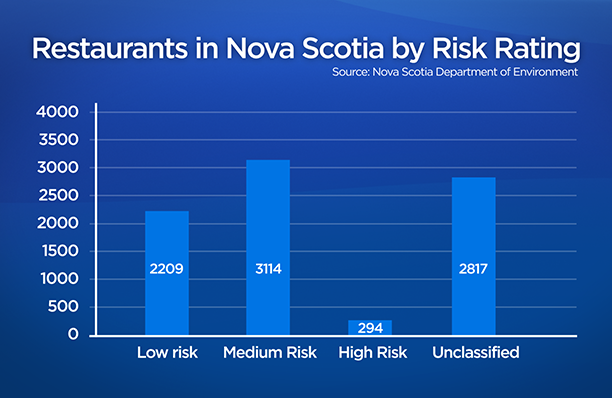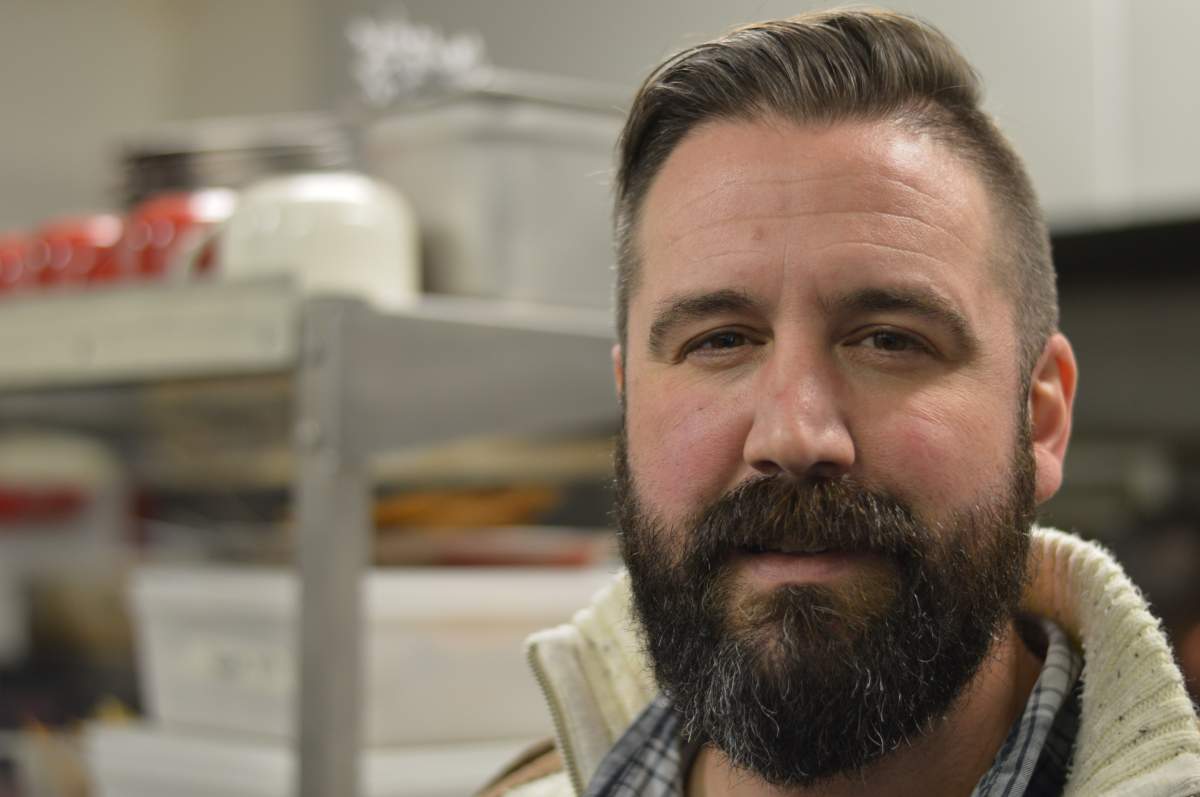Richard Julien prides himself on running a tight ship, a hallmark of his tenacity.

A 27-year veteran of the restaurant industry, the chef has worked his way up from dishwasher to restaurant owner, a journey that gives him a unique perspective on how a restaurant is run.
When Global News met with Julien at his Fairview restaurant, The Anchor, his establishment had recently passed its latest food safety inspection.
“We blew it out of the water,” he says.
Julien is more than happy to give a tour of his kitchen and cooler, and he’s open to discussing his encounters with food inspectors.
“I’ve had good experiences in all my properties. They show up once, sometimes twice a year and are very thorough,“ he said.
But that’s not the norm for Nova Scotia.
READ MORE: N.S. restaurants can go 6 years without inspections
Years without inspections
A Global News investigation has found that the province’s restaurants can go up to six years without being inspected.
An analysis of seven years of data obtained from Nova Scotia’s online database of restaurant inspections and multiple freedom of information requests indicate that 2759 of the 8434 restaurants that operated in that period — nearly a third — have gone 18 months or more without an inspection
The figures are even more concerning for establishments that the province has rated as being high risk of leading to foodborne illness.
In the past seven years, 90 restaurants that Nova Scotia has rated as being at high risk have gone longer than six months — the provincial standard — without being inspected.

Julien says that fact sounds concerning but that it doesn’t matter how often establishments are inspected. He says that keeping a clean kitchen — and customers healthy — should be a given.
“If you’re a disciplined culinarian or restaurateur, then it’s going to be part of your breathing. It’s just going to be a response that you do that you make sure your kitchen is at the ready,” he said.

Get weekly health news
“If someone came in today, then we’d be ready — because it’s just what we do.”
Gordon Stewart, president of the Restaurant Association of Nova Scotia, agrees.
“Technically, you shouldn’t be getting ready for inspections — you should always be ready for inspections,” he points out. “A good restaurant would be checking the refrigeration, checking the storage area, checking the temperatures all the time.”
Why inspections matter
Most provinces use a Hazard Analysis Critical Control Point (HACCP) criteria for determining high, medium and low-risk food establishments.
According to Bruce Newbold, director of McMaster’s school of geography, the HACCP criteria is an internationally recognized food safety system, used by both the government of Canada and the United States Food and Drug Administration.
In 2008, Newbold published the results of a study he conducted with Hamilton’s Public Health Service that found more frequent inspections of high-risk food premises did not actually lead to an improvement in compliance from restaurants.
Newbold said the large gap between inspections in Nova Scotia could be cause for concern and the results of the Hamilton study couldn’t be extrapolated to Nova Scotia.
Newbold says that over such a long time period, there would likely be a large turnover in staff and training may not be kept up to date, but it could also breed complacency in restaurant owners.
“Operators might go, ‘Oh, I don’t have to worry about inspections for the next few years,’ and they’d let things slip and not protect public health by ensuring food is served or handled correctly,” he said.
Rick Holley, a professor emeritus at the University of Manitoba who specializes in food safety, says that consuming food that is produced quickly and in large quantities will always pose some level of risk. He adds that Nova Scotia’s inspectors, and the visits they pay to restaurants, have an important role in keeping food safe.
“They have to be done in order to demonstrate that the inspection agency is determined to ensure that the food in that … geographic area is safe,” he said.
During the past seven years, Nova Scotia inspectors have found and reported hundreds of incidents of pests being found in restaurant kitchens, numerous incidents of improper storage of hazardous food items and at least one incident of a restaurant failing to prevent food products from being exposed to sewage or solid waste.
Holley says that short of having an inspector in every restaurant, there is no way to keep every restaurant clean all the time. But he adds that one of the best methods to ensure the industry stays on its toes and polices itself is to randomly inspect restaurant kitchens and food production areas as often as possible.
“If there is no inspection taking place, then I think it’s just too easy for the owner to become complacent, take shortcuts, and eventually problems will arise when he’s not looking,” Holley said.
WATCH: How often is Nova Scotia conducting food safety inspections at restaurants?

‘We do take this seriously’
Iain Rankin, Nova Scotia’s Minister of Environment, says that inspectors from his department attempt to clear about 11,000 inspections a year — a figure which includes certification inspections and are not posted on the province’s online database — and that he is happy with their work.
“I want to make Nova Scotians know that we do take this seriously, and 11,000 plus inspections is a testament to that,” Rankin said.
The province’s lack of adherence to its own guidelines comes 17 years after the Department of Agriculture, which at the time controlled restaurant inspections, received an award from the Canadian Institute of Public Health Inspectors for “meritorious achievements in the field of public or environmental health” in creating a new food safety program.
It was the first time a provincial department had received the award.









Comments
Want to discuss? Please read our Commenting Policy first.